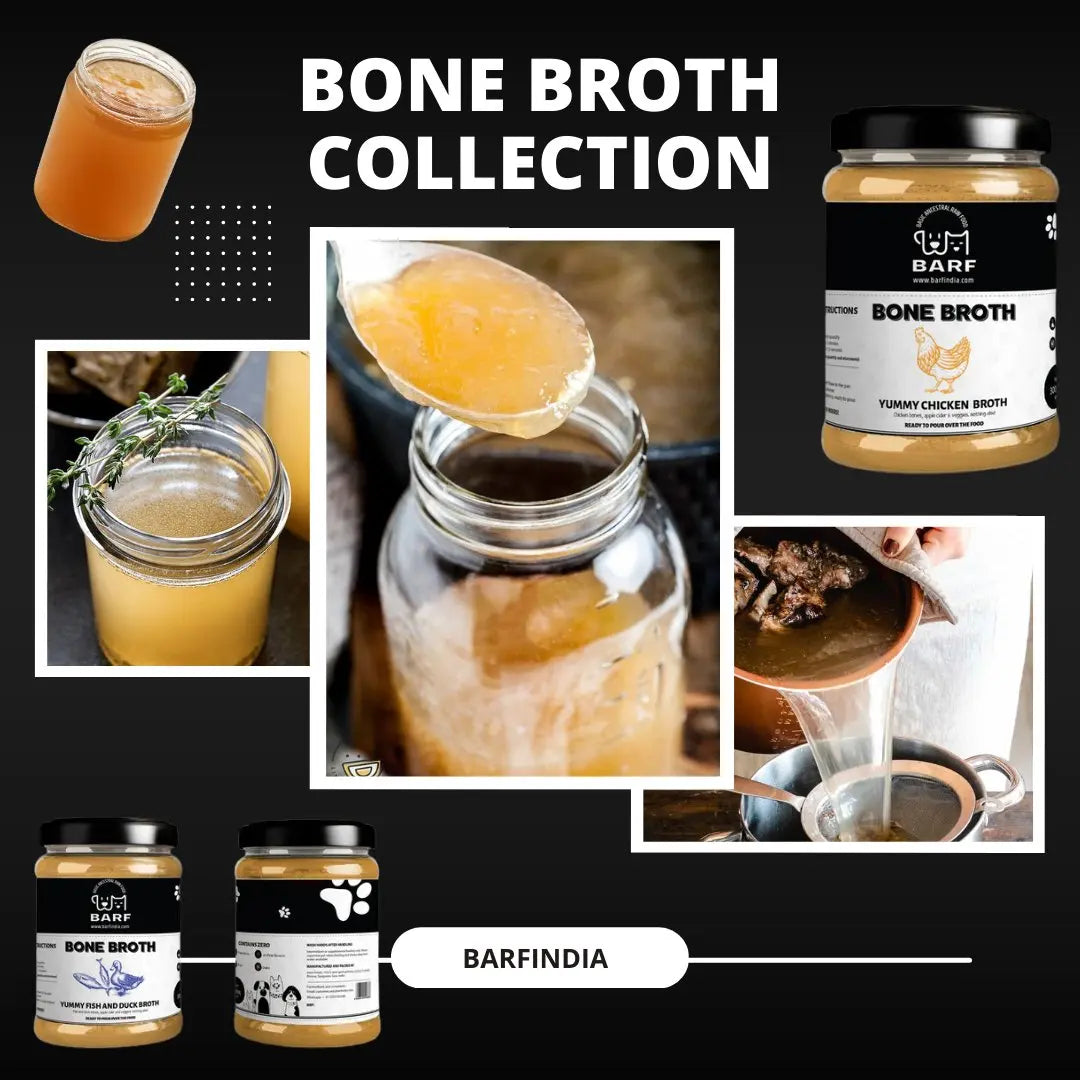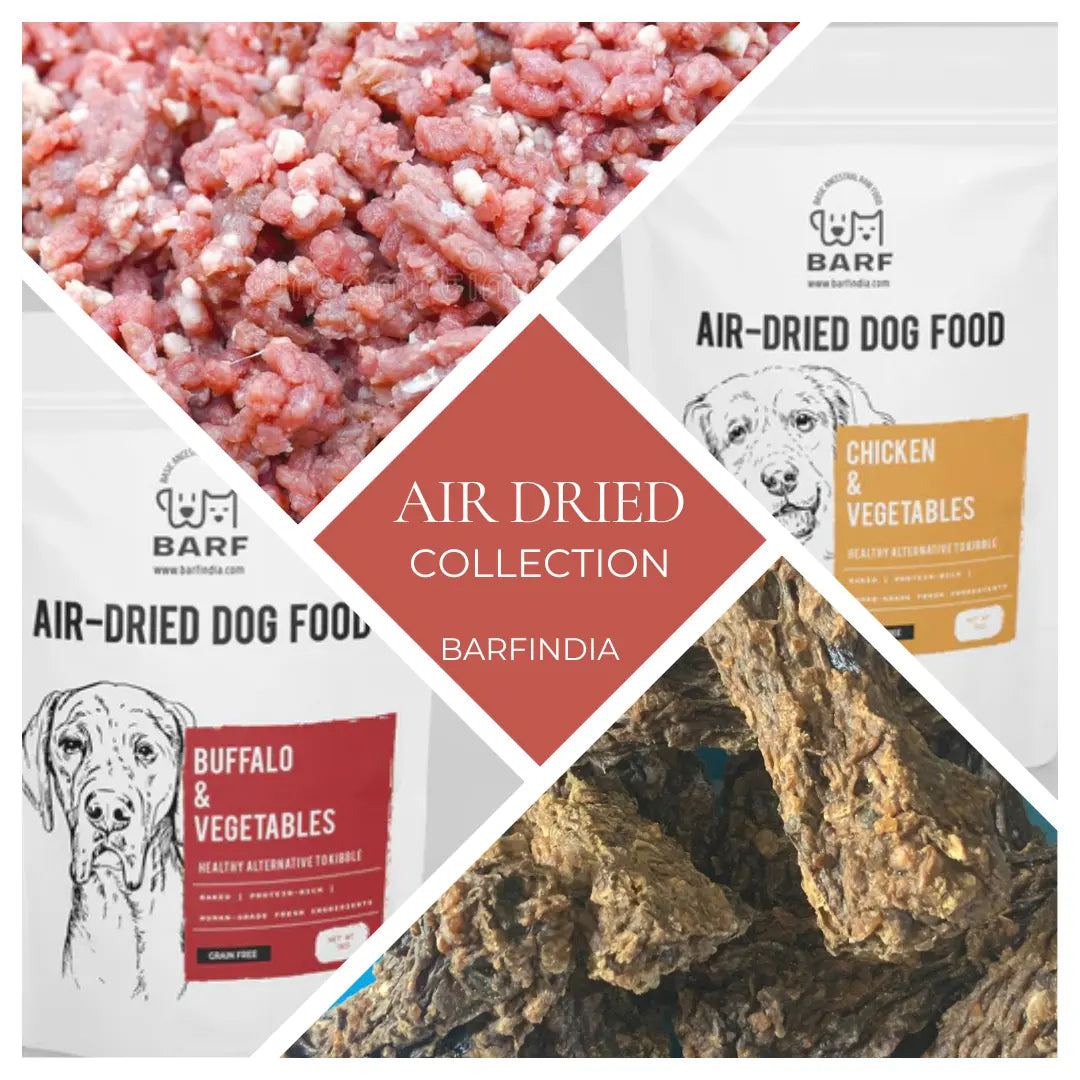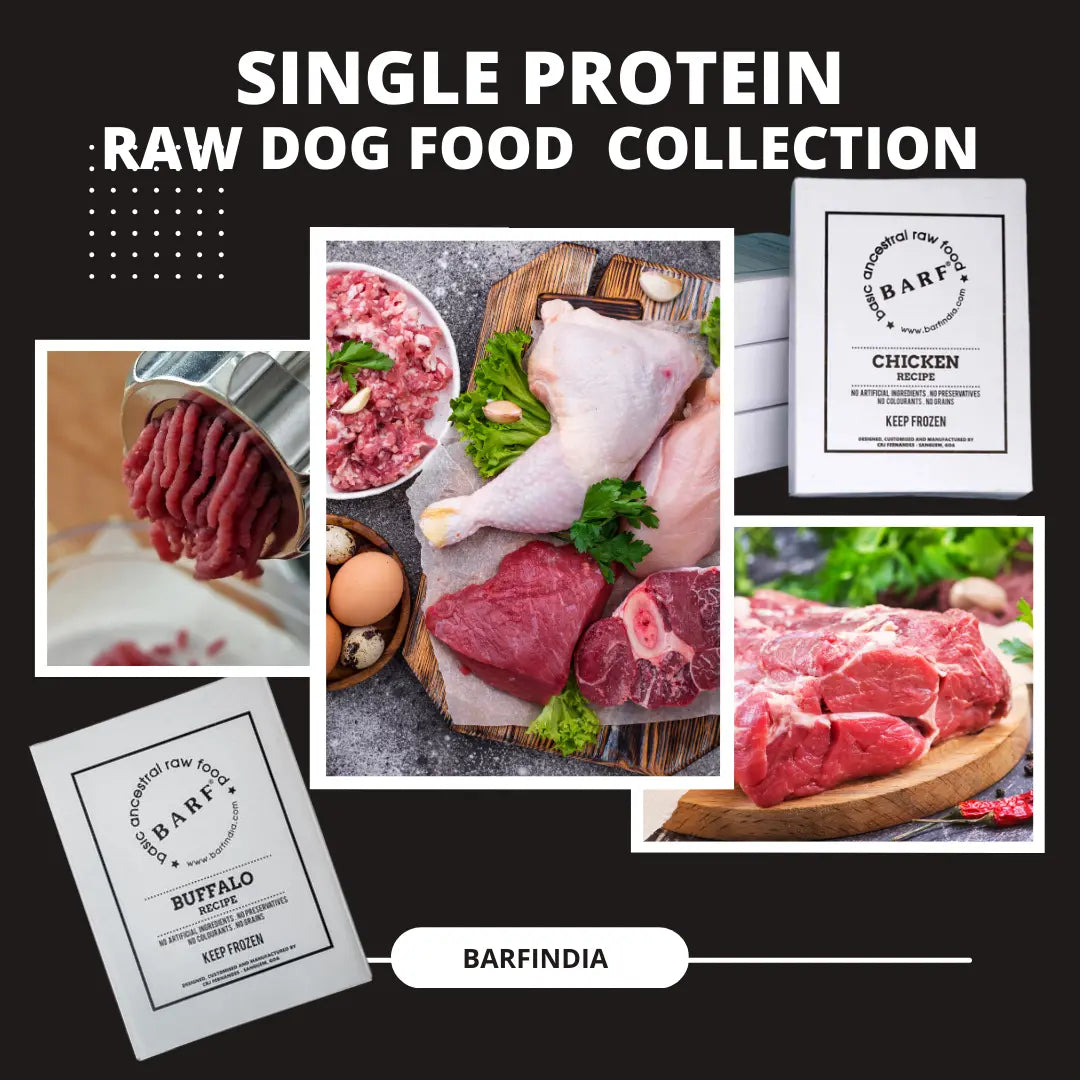
Manganese for Dogs: The Importance of a Balanced Raw Diet for Optimal Health.
Nivedita FernandesThe Importance of Manganese for Dogs: Why a Properly Formulated Raw Diet is Essential
Manganese is a vital trace mineral that plays a significant role in a dog's overall health. From supporting bone growth to ensuring proper enzyme function, manganese is often overlooked in many commercial dog foods. In this blog, we will delve into why manganese is crucial for dogs, why a well-formulated raw diet is a great way to ensure they get enough of this mineral, and which specific meats and organs contain it. We'll also explore the potential health issues that can arise from manganese deficiency and how to prevent them through proper nutrition.
What is Manganese?
Manganese is a trace mineral necessary for many of the body’s key functions. Although dogs only need it in small amounts, its importance cannot be understated. Manganese supports everything from bone development and joint health to enzyme function, metabolism, and even reproductive health. Without sufficient manganese, a dog’s body cannot properly synthesize cartilage, bones, or efficiently process energy, which could lead to serious health complications.
Key Functions of Manganese:
-
Bone development and maintenance
-
Support for enzyme functions in metabolism
-
Antioxidant defense against oxidative stress
-
Proper functioning of the nervous system
-
Synthesis of glycosaminoglycans for joint health
Why Manganese is Important for Dogs
1. Bone and Joint Health
Manganese plays a pivotal role in skeletal development. It is necessary for the formation of healthy bones and cartilage, making it particularly important for growing puppies and active dogs. Manganese contributes to the production of chondroitin sulfate, a key component of cartilage, helping to prevent joint issues like arthritis. Puppies deprived of manganese may experience growth problems and conditions like hip dysplasia, while adult dogs with manganese deficiency are more prone to degenerative joint diseases.
2. Enzyme Function and Metabolism
Manganese acts as a cofactor for several critical enzymes that are involved in metabolizing carbohydrates, proteins, and fats. This means that it helps convert food into usable energy. Dogs need manganese for effective nutrient absorption and metabolic health, ensuring they stay energetic and active.
3. Antioxidant Protection
Manganese contributes to the formation of the enzyme superoxide dismutase (SOD), which protects cells from oxidative stress. By neutralizing harmful free radicals, manganese supports cellular longevity, reduces inflammation, and lowers the risk of chronic diseases such as cancer, heart disease, and age-related conditions in dogs.
4. Reproductive Health
For both male and female dogs, manganese is crucial for maintaining fertility and reproductive success. In females, manganese ensures proper ovulation and lactation, while in males, it supports sperm production and overall reproductive health. A deficiency in manganese can impair fertility and lead to complications in breeding.
Why a Properly Made Raw Food Diet is Essential for Providing Manganese
A raw food diet, when correctly formulated, offers a highly bioavailable and nutrient-dense source of manganese, making it an excellent choice for maintaining your dog's health. Commercial dog foods, particularly kibble, often contain synthetic vitamins and minerals, which may not be as easily absorbed as the natural forms found in raw foods.
1. Bioavailability of Manganese in Raw Food
In raw food, nutrients like manganese are in their natural, most bioavailable form. This means that dogs can absorb and utilize these nutrients more efficiently compared to synthetic additives often found in processed kibble. For optimal health, it's important to ensure that your dog’s diet contains whole foods rich in manganese, allowing their bodies to properly metabolize and use the mineral.
2. Minimally Processed for Maximum Nutrient Retention
Unlike commercial dog food that undergoes high-heat processing, raw food retains all of its naturally occurring nutrients, including manganese. Cooking and processing degrade many essential nutrients, rendering them less effective or entirely useless. A raw diet, which is minimally processed, preserves the nutritional integrity of the food and ensures that your dog is getting the full benefit of every ingredient.
3. A Balanced, Varied Diet for Optimal Nutrient Intake
A well-formulated raw diet consists of a variety of meats, bones, and organs, which provides a wide spectrum of nutrients, including manganese. This diversity helps to balance nutrient intake and reduce the risk of deficiency. In addition to manganese, a raw diet offers a range of other vital nutrients such as calcium, phosphorus, and omega fatty acids, contributing to your dog’s overall well-being.
Best Sources of Manganese in a Raw Food Diet
While not all meats and organs are equally rich in manganese, several sources can ensure your dog gets enough of this important mineral. Here are the best options to include in a raw food diet:
1. Beef Liver
Beef liver is a nutritional powerhouse, rich in manganese, vitamin A, D, and E, making it one of the best organ meats to include in a raw diet. It supports bone health, joint health, and provides essential antioxidants that protect your dog’s cells.
2. Poultry Gizzards and Hearts
Chicken and turkey gizzards are excellent sources of manganese and can be incorporated into your dog's raw diet. These organ meats are also a good source of high-quality protein and other essential vitamins and minerals, making them a valuable addition to the diet.
3. Green Tripe
Green tripe, from the stomach lining of ruminant animals like cows and sheep, is another nutrient-dense source of manganese. Additionally, it contains probiotics and digestive enzymes that help maintain a healthy gut.
4. Mussels
Green-lipped mussels, in particular, are exceptional sources of manganese and are often used in raw diets to support joint health. They are also rich in omega-3 fatty acids, glucosamine, and chondroitin, which are beneficial for dogs with joint problems or arthritis.
5. Bone Marrow
While bones primarily offer calcium and phosphorus, the bone marrow inside is a good source of manganese. Large bones from cows or deer can provide this trace mineral in addition to their other benefits.
6. Plant Sources
Although dogs are primarily carnivores, small amounts of plant matter, like leafy greens (spinach, kale) and vegetables (sweet potatoes, squash), can also contribute small amounts of manganese to their diet.
Symptoms and Health Issues of Manganese Deficiency in Dogs
When a dog's diet lacks sufficient manganese, a range of health problems can arise. While rare, manganese deficiency can have serious long-term effects on a dog’s health and well-being, particularly in puppies and active breeds.
1. Skeletal Deformities and Bone Weakness
One of the most common and severe consequences of manganese deficiency is the development of skeletal deformities. Without adequate manganese, puppies may suffer from improper bone growth, leading to conditions like hip dysplasia and stunted growth. These issues can cause pain, reduce mobility, and significantly affect a dog's quality of life.
In adult dogs, a lack of manganese may result in bone weakening and increased susceptibility to fractures. This is especially concerning for large or active dogs, which already have a higher risk of joint and bone-related problems.
2. Joint Issues and Osteoarthritis
Because manganese is essential for the production of chondroitin sulfate, a deficiency can lead to joint issues, including osteoarthritis. This condition, which involves the degeneration of joint cartilage, can cause chronic pain, stiffness, and a loss of mobility. Osteoarthritis can drastically reduce a dog's ability to perform normal activities like walking, running, and playing.
3. Reproductive Problems
Manganese deficiency can also impair reproductive health in both male and female dogs. In females, this may result in irregular heat cycles, difficulty conceiving, and pregnancy complications. In males, it can reduce sperm quality and lead to fertility issues.
4. Metabolic Imbalance
Manganese plays a crucial role in metabolism, and a deficiency can result in metabolic dysfunction. Dogs may experience weight loss, muscle wasting, or lethargy, as their bodies struggle to process carbohydrates, fats, and proteins efficiently. These issues can lead to overall poor health and vitality.
How to Ensure Your Dog Gets Enough Manganese in a Raw Diet
Ensuring your dog gets enough manganese from a raw food diet is simple if the diet is well-balanced and diverse. Incorporating organ meats, muscle meats, bones, and occasionally plant matter can provide the necessary manganese levels. If you’re preparing your dog’s meals at home, it’s important to consult with a veterinarian or a canine nutritionist to ensure the diet is properly balanced and provides all the necessary nutrients, including manganese.
You may also consider supplementing the raw diet with foods like green-lipped mussels or small amounts of plant matter, such as leafy greens, for additional manganese.
Conclusion
Manganese is a critical nutrient that supports multiple systems in a dog’s body, including bone development, enzyme function, and antioxidant defense. Ensuring your dog gets enough manganese through a well-formulated raw diet is essential for preventing health issues such as skeletal deformities, joint problems, and metabolic dysfunction. By choosing the right combination of meats, organs, and bones, you can provide a naturally balanced diet that keeps your dog healthy and happy for years to come. Always remember to consult with a vet or canine nutritionist to ensure your dog’s dietary needs are met



